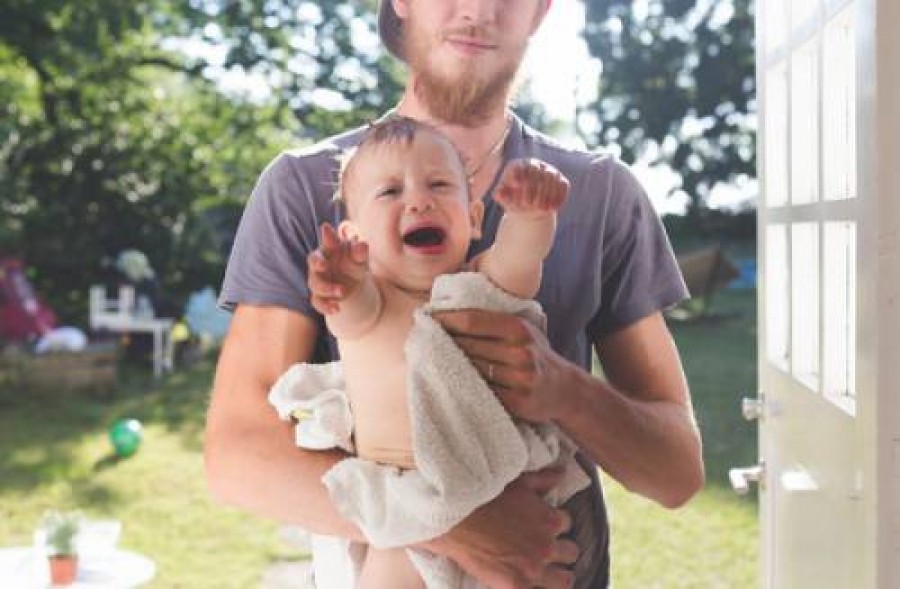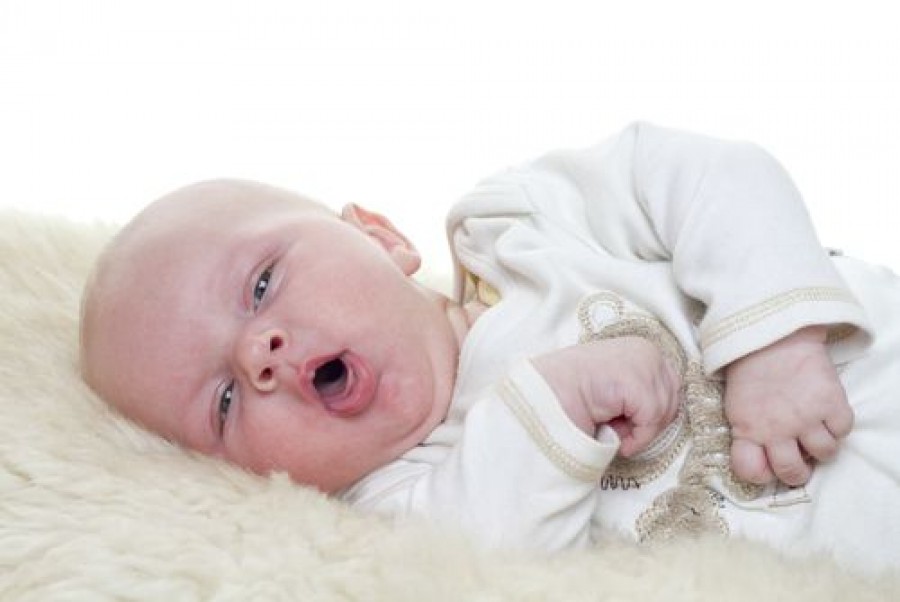Why do babies cry?

Crying is a kind of communication of the baby to explain if he or she is scared, tired, hungry, sleepy or sick and/or the baby is looking for a warm cuddle.
When you are new to being a parent, it is very hard to understand why your baby is crying and can be quite stressful -especially when you can’t figure out the reason why your baby is cry excessively. Parents frequently get exhausted mentally and physically looking after a crying baby and thoughts such as ‘am I not a good parent?’ runs through your mind.
Newborns usually don’t cry till third to fourth week after birth, this is the time when your baby will begin crying to convey their needs and to share their feelings. Your baby demands will be unclear at this age hence their strongest way of communication remains crying, as a parent you need to figure out what their needs are and respond to them.
What causes a baby to cry?
Hunger– hunger is the major reason behind a crying newborn. As the baby is breastfed only and sleeps most of the times you can’t come up with more reasons than hunger. A newborn’s stomach is very small to fill up rapidly and you may get a quick call for the next feed. A hunger cry may be of short duration around 5-10 minutes and is a weak cry, till the baby is fed again. Try to feed your baby more frequently. Normally a baby needs 8-12 time feeds a day. You can see the signs of hunger to prevent baby from crying such as lip smacking, hand or finger sucking, turning his head to find bottle or breast.
Burp – A burp is sometimes all that is required to stop cry of a baby. When a baby is breastfed or bottle fed, air enters into stomach and fills it rapidly. This trapped air may cause discomfort to your baby after every feed. Making a baby burp is most of the times helpful. Read more on how to hold and wind your baby here.
Wet diapers – A newborn who is breastfed or bottle fed generally urinates more frequently. Urine is acidic and it irritates the soft and sensitive skin of a newborn. A proper cleansing of the skin, drying with a towel and putting a moisturising cream on after every change of diaper makes the baby feel better. Are cloth diapers a good choice? Read here.
Nappy rash – a nappy rash makes your baby very uncomfortable for most of the day, a baby may be very irritable. A nappy rash cry is bit intense than a hunger cry and is of more duration. To prevent nappy rashes, it is important to keep the skin dry and less wet or moist with wet diapers, let the baby be off nappy for some time and then you can put the diaper back on. Don’t forget to apply soothing cream and healing cream for nappy rash over the eroded skin. Application of soothing creams will help your baby have a peaceful sleep. Read more on how to treat baby nappy rashes, here.
Sleepy – Lying awake for few hours, changing diaper, baby bath time, playing even feeding can be tiring for the baby. A sleepy or tired baby can be very irritable. If you see your baby crying in pauses or clinging to you and not willing to stop, a cuddle can be a solution to it. Hold your baby in your arms, stroking your baby, caressing or a quiet place would be helpful. Read here on 6 expert strategies to put your baby to sleep.
Tummy ache – Babies normally don’t cry for longer duration. Once they are in the arms of their parents they get settled. But if the cry continues, and all the tactics don’t work the best advice is to take your baby to a doctor. Stomach pains could be due to many reasons, the milk intolerance, air, bowel obstruction, etc. Stomach ache makes baby cry in higher pitch. A restless baby sleeps poorly, draws up their legs and wakes up early.
Over stimulation – A newborn baby is welcomed by all the friends, family and neighbours which is sometimes scary for the baby. Too much stimulation in front of the baby as well as louder noises makes baby irritable and gives a reason to make your baby cry. When you see a baby getting disturbed with the environment take him to the quiet place, mum should try cuddling. Your aim should be to calm the baby and help your baby get a good sleep.
Ear infections – This type of infection is commonly seen in babies over three months of age. Babies with such infections are feverish, irritable, usually seen tugging on their ear and with earache. Babies cry consistently out of pain .In worse cases, discharge is seen out of the ear. It is advised to take the baby to the doctor and get the ear infection treated.
How crying baby affects parents?
Exhaustion – A persistent cry of a baby can cause mental exhaustion of the mother and/or father. Parents of these babies stay tired, disturbed and isolated most of the day. Parents get exhausted in the effort to make the crying baby happy. Mother, at times, may get angry at the baby but this is absolutely normal. You can calm yourself down with calm music or get some relatives help in handling the baby for the time till you normalize.
Physical stress – In many women, a crying baby causes headache, high blood pressure, body ache, heart racing, chest pain, etc. Sleep deprivation and loss of appetite can add to these symptoms. It is important that when you are feeling such symptoms that that you seek practical help from your partner or family. They may help assist with taking care of your baby, allow you to take some rest, eat some healthy food or join a gym.
Sex and social life – A crying baby becomes an argument amongst the parents. Mostly their reason of argument becomes as how to handle the baby, how to stop his/her cries, how many times to feed the baby and so on. Couples almost forget their sex life as well as their friends and family. Most of the times, parents spend their day settling the baby added disturbed sleep. Your life doesn’t end with the baby, it’s a beginning to a new life .Try to enjoy your life with the baby, get a good and trustworthy helping hand to have your day or night out with your partner. Spend some time with your family and friends.



